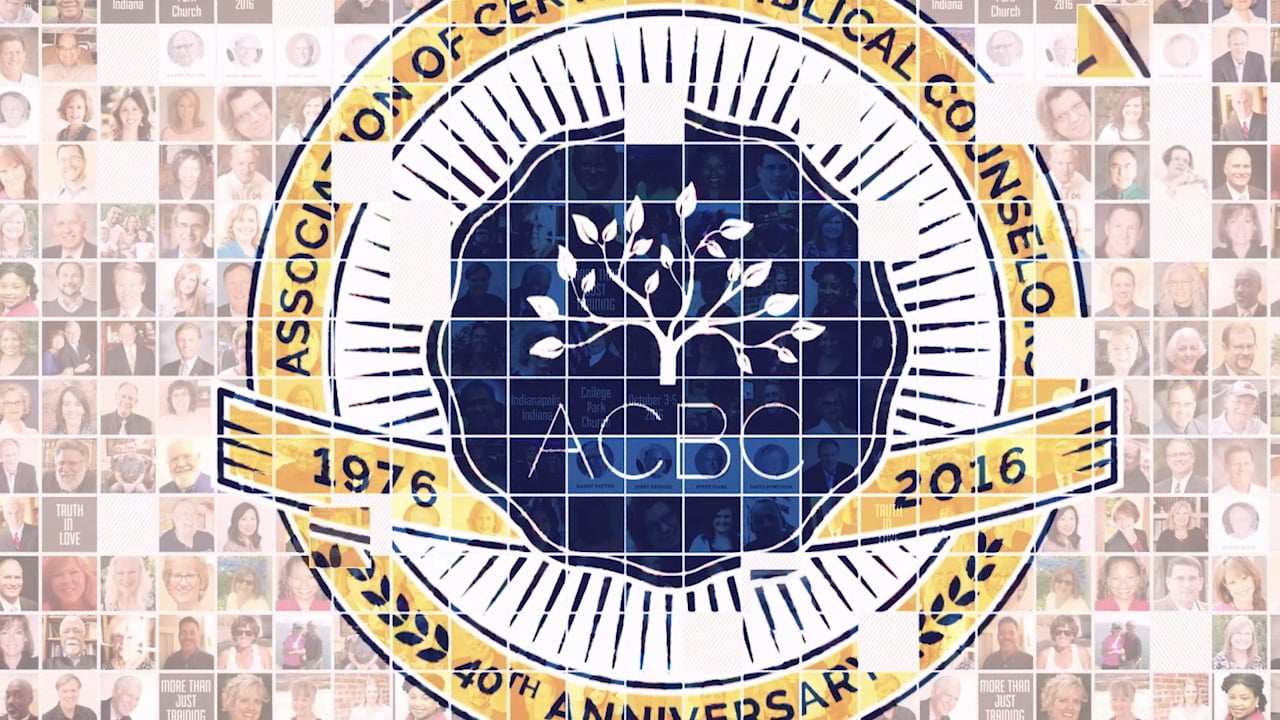Reflections: 2016 ACBC Conference

Last week I had the privilege of attending the ACBC Conference in Indianapolis. This year the conference celebrated the 40th Anniversary of ACBC. I thank God for the work of ACBC and that he has seen fit to allow it to continue for 40 years. The conference featured several men who have been involved with ACBC from the beginning or played key roles in its continuation. Two such men were David Powlison and Wayne Mack. I got to hear both of these men speak and would like to share some key points from their messages in this week’s blog.
In one of Wayne Mack’s breakout sessions he spoke on the Doctrine of Wisdom. He related this doctrine to God’s wisdom, omniscience, and sovereignty. He referenced numerous verses such as Hebrews 4:13, 2 Chronicles 16:9, Job 28:24, Isaiah 46:9-10, Matthew 6:8; 10:29-30, Romans 11:33-34, and Psalm 139:1-5; 17-18. From verses such as the ones just listed, Mack listed several implications.
People who know and believe in the omniscience of God will…….
- Never believe God has made a mistake in their circumstances
- Can stand fast in the face of tough situations
- Believe 1 Corinthians 10:13
- Will do what Proverbs 3:5-6 says
- Will be glad to do James 1:5
- Will refuse to think that any other way than God’s is a better way
- Believe that God’s interpretation of reality is the only one that is 100% accurate
- Trust he (God) is doing the right thing even when it hurts
- Will realize that God alone knows why we have the problems we have
- Will carefully search the Word of God for solutions to life’s problems
- Will desire that their thoughts and desires will reflect God’s
Does this list reflect the way you think? Do you believe in the omniscience of God? Friends, ponder the implications above and see where you land. When suffering comes are you tempted to doubt God’s wisdom or his goodness or do you trust that his ways are right and that he never makes a mistake?
The other speaker I mentioned was David Powlison. In his plenary session he spoke on how we can counsel more effectively (faithfully, lovingly). He lists six ways and I will reproduce them here for you.
- You help another person when you level the playing field. You do not enter the counseling session as counselor and counselee but human to human.
- You help when you genuinely care for other people. Jesus always created space for other people in the room and then interacted with what emerged. We, as counselors, must be careful to not take up too much space in the room.
- Ask good questions about the things that really matter. Who do you love? What do you love? How do you love? Where do you place your hope? What do you fear?
- You help when you really listen. Respond to what has actually been said.
- You help when what you say is relevant. Relevance connects the dots.
- You help when you bring grace into the room in both word and deed.
As a counselor, I found these six points good reminders of key elements of counseling and pray they will serve you well also. As counselors, we must be mindful of the fact that we are simply tools in God’s hands. It is only his grace that keeps us from being on the other side of the table and it is his love in us that gives us an others-oriented love that allows us to care for people.
I hope the brief summary of these two men’s messages will cause you to pause and reflect on the truths they presented and may they serve to help make all of us better counselors.
By His Grace Alone,
Josh
